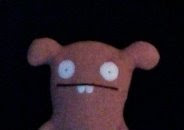Jim Rice and Rickey Henderson were voted into the Hall of Fame today, the former in his last time on the ballot, the latter in his first. Since Rice's hey-dey was before my time I'm not really in a position to have a vociferous opinion on his candidacy, but Rickey was a 'contemporary' of mine.
A few thoughts on the guy. First, I generally remember not liking him, thinking he was kinda an a-hole -- a little too much me-me-me that started to become a thing amongst baseball leadoff hitters (Rock Raines anyone? Early years Kenny Lofton?) but that role has been co-opted by NFL wide receivers so it won't be his legacy. I was quite pleased that, on the afternoon when Hendersen stole his record-setting base, Nolan Ryan grabbed the headlines that night by throwing his 7th no-hitter at the age of 42 or something (now checking to see if this memory is accurate... yes I am, according to MLB's list of classic games -- both occured on May 1, 1991).
Hendersen played for an amazing number of teams in his 25-year career: Oakland, NYY, Oakland II, Toronto, Oakland III, San Diego, Anaheim, Oakland IV, NYM, Seattle, San Diego, Boston, Los Angeles (that's 13 teams). His best year was probably 1990 at age 31, when he hit 0.325 with 28 HRs (somehow driving in only 61 runs), 119 runs, and 65 stolen bases, en route to winning the AL MVP. The real key to Henderson, at least in terms of the Hall of Fame, is how long he was able to be good, if not great, post-30 years of age. For example, from age 34 - 37 (1994 - 1997) he had four straight years of >0.400 OBP while averaging 31 SBs -- these are the years that Hall of Fame candidates pile up the stats that eventually get them in, while those that either get hurt or just lose it faster don't end up with Hall-worthy stats. Rickey provides a good example of this, actually -- according to baseballreference.com, using an algorithm developed by Bill James, Henderson and Tim Raines had remarkably similar stats through age 29... but then Raines tailed off faster than Henderson, which is why Henderson is a first-ballot HoF while Raines got 22% of the vote this year.
While I'm on it, I feel like some of the best baseball players of my Golden Age -- defined as 1984 - 1986, when I collected Topps baseball cards pack-by-pack -- are getting very little respect in the Hall of Fame. Part of it is that any offensive numbers put up during this period were soon dwarfed by the steroid era, so when the stars of the 80s were retiring in the 90s, their stats didn't look as impressive. Certainly, this has affected players unequally -- leadoff type guys, who got in based on hits and runs (Henderson, Boggs, Gwynn, Brett) aren't going to be affected by the later power surge. I do think this has hurt Andre Dawson's candidacy, although he did get up to 67% this year and Jayson Stark points out that everyone who reaches 67% has, eventually, gotten in to the Hall.
But where I see this odd anti-80s "bias" (for lack of a better word) is with pitchers. Clemens is obviously his own case-study, but why are the best pitchers of the 80s not getting any votes? Particularly egregioius is Jack Morris, by far the best money pitcher of the decade -- he only received 44% of the vote this year. The guy started 3 All-Star games and averaged 241 innings pitched a year! To put that in perspective, 9 of the last 18 IP leaders in the two leagues (2000 - 2008) didn't reach 241 innings.
Another pitcher who probably should have deserved at least some debate was Dennis Martinez (El Presidente) -- especially if one is a believer in WHIP as a gauge of pitchers, he's was pretty good. And I'm bummed David Cone didn't get enough (5%) to stay on the ballot. He's no Hall of Famer, but he was a great Hired Gun.
Then again, perhaps these things happen in waves, and it isn't so much that 80s-era pitchers aren't receiving their due, but rather that the decade just didn't produce many notables, especially compared to those that would come in the 90s: Maddux, Pedro, Randy Johnson, Rivera & Tom Glavine at a minimum, with certainly more in the argument.
skip to main |
skip to sidebar

He believes the culprits might be the very people who, uh, soiled your rug, and you are in a unique position to confirm or disconfirm that suspicion.

Blog Archive
-
▼
2009
(203)
-
▼
January
(26)
- Purple Monkeys & Big Macs
- More on Atheism
- His noodly appendage
- Adventures in babysitting
- Wicked Witch of the South
- Four years ago
- The President's Job
- Ronan Tynan can go home now
- The sludge of the intertubes
- Championship Picks
- My Hope
- Not so evil?
- Terror suspects
- The meaning of words
- I have a ball. Perhaps you'd like to bounce it?
- Hall of Fame, Class of '09
- Community Service (better than jail time)
- More Fail
- Divisional Round Picks
- Polls v. Vegas
- Announcer Fail
- Pre-gaming
- Gambling Fail
- Prime
- Quick thought
- Wild Card Weekend
-
▼
January
(26)


